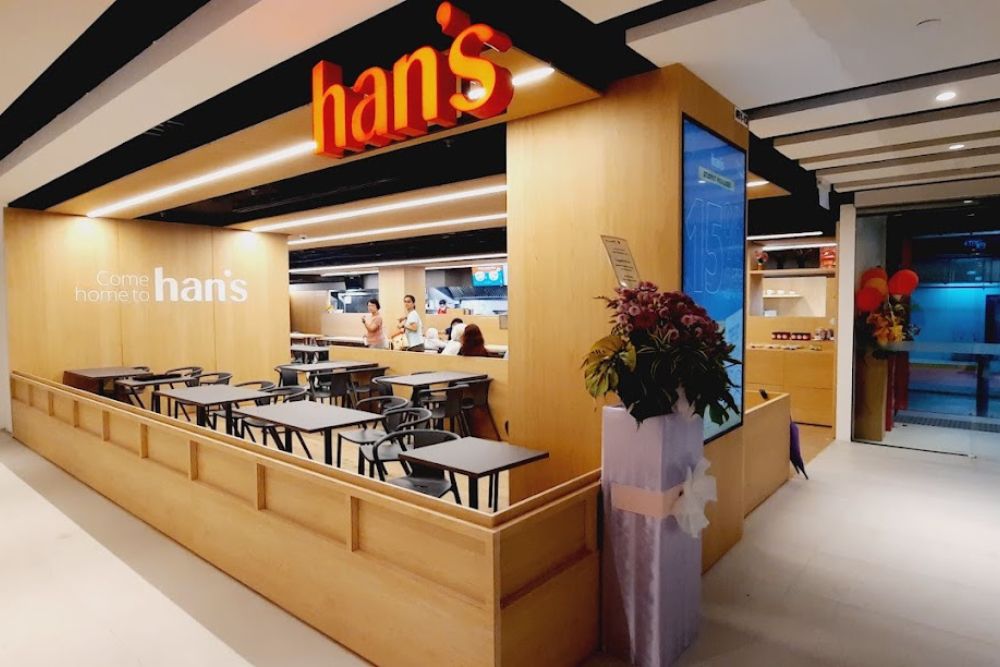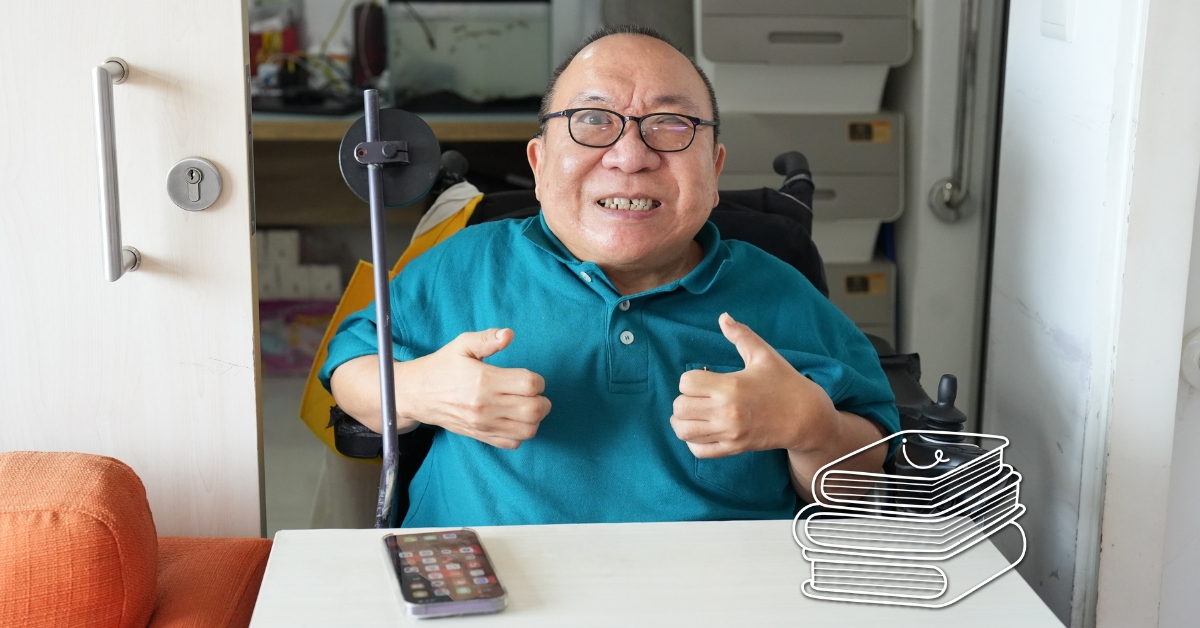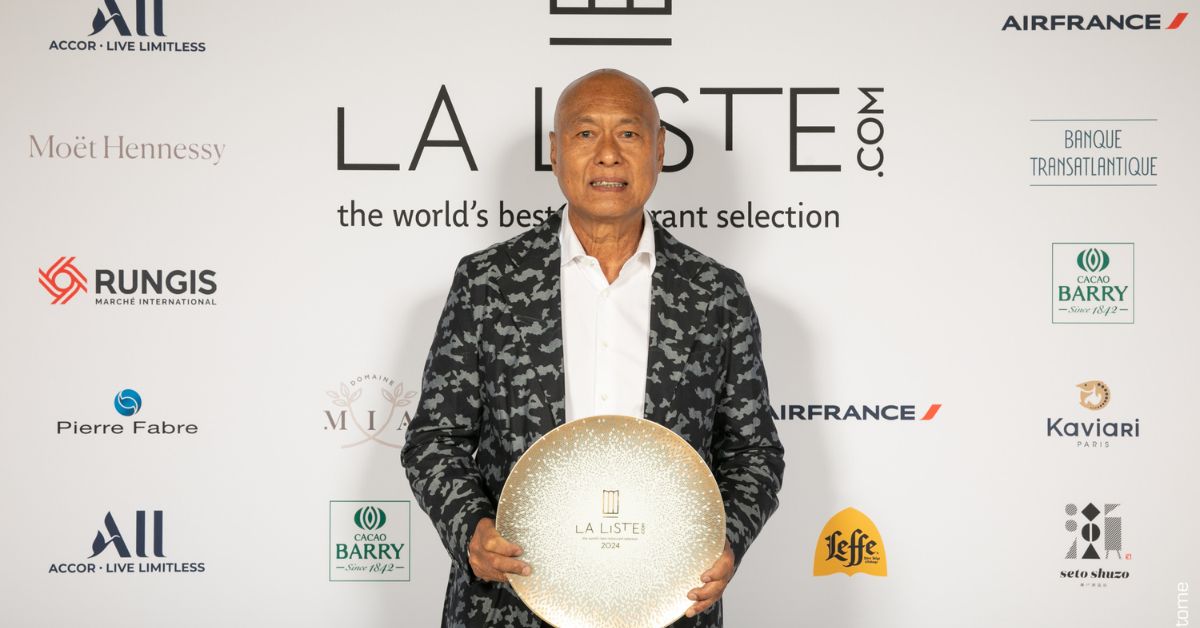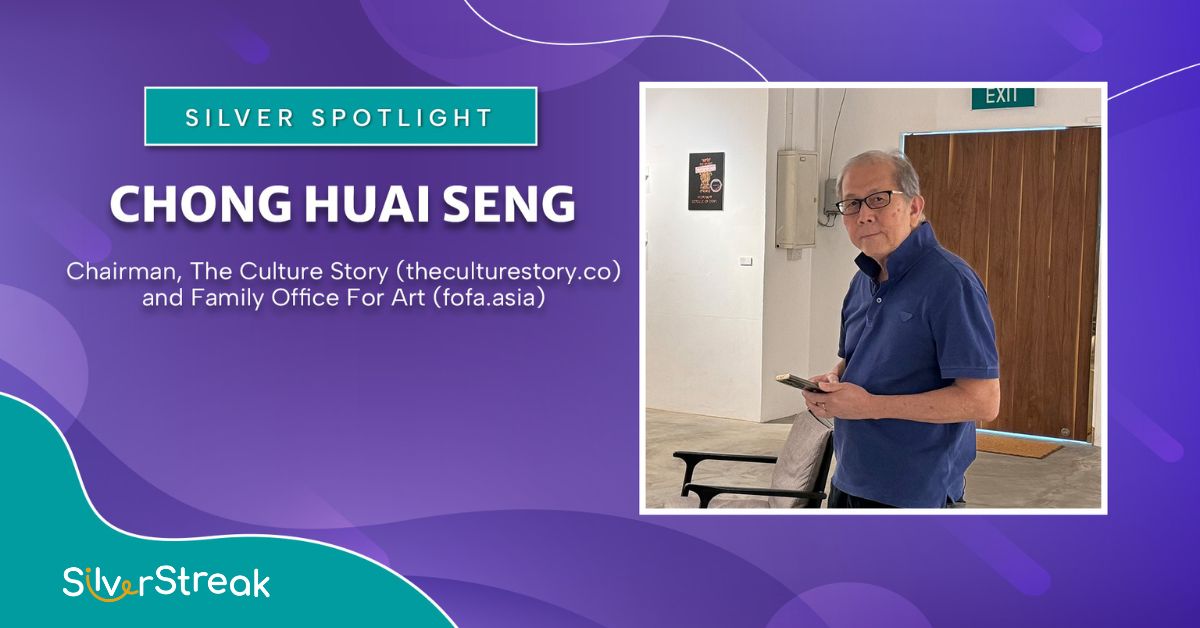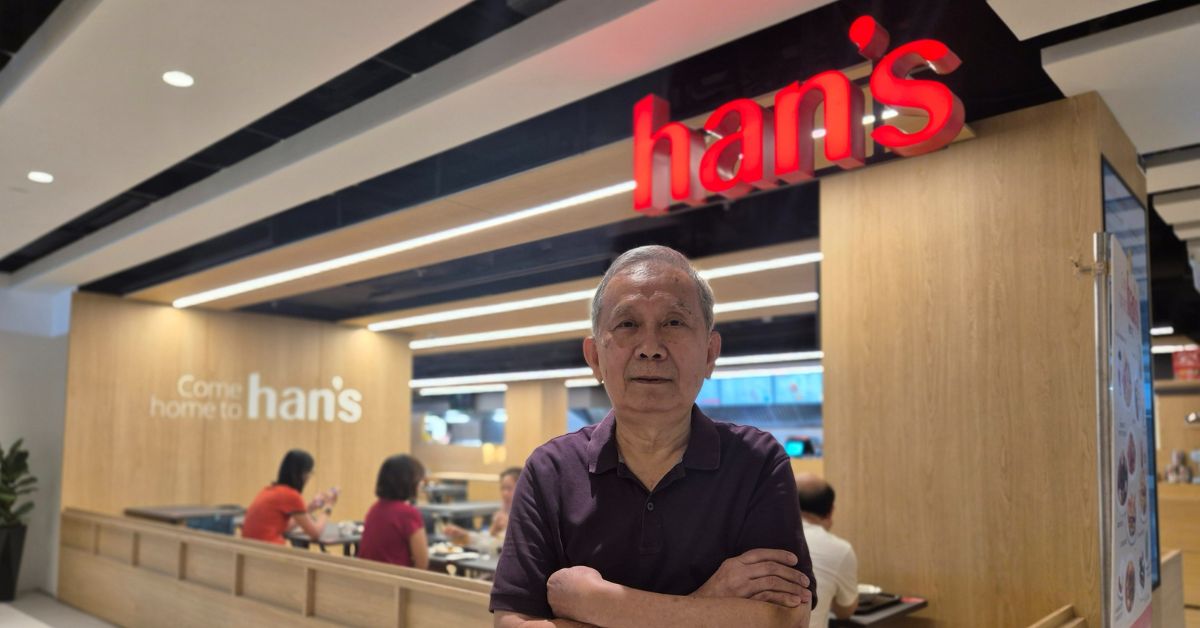
Before Western food became a common sight in shopping malls and shophouses across Singapore, we only had a few places to get a steak or fish and chips at a reasonable price: Han’s Cafe & Cake House was one of them.
Han’s, as it was more commonly known, is popular due to its approachable prices and wide menu of western grills and family-friendly Hainanese fare like beef hor fan and Hainanese pork chop.
Although a household name in Singapore, Han’s is also part of a culinary old guard now facing mounting competition from the buzzy, star-adorned joints filling younger folks’ stomachs and social media feeds.
The 79-year-old Han Choon Fook is well-aware of the headwinds his eponymous chain Han’s faces. But it’s certainly not enough to quell the founder and managing director’s spirit, seeing as how he’s not only planning to keep taking point on the brand’s 21 outlets, but expand its footprint even further with new concepts.
I’ve been in this journey for such a long time. This level of activity – it’s good for me. Instead of thinking about what’s next for me, I’d rather think about how we can try to do better.
He says,
Advertisement
The story of Han's
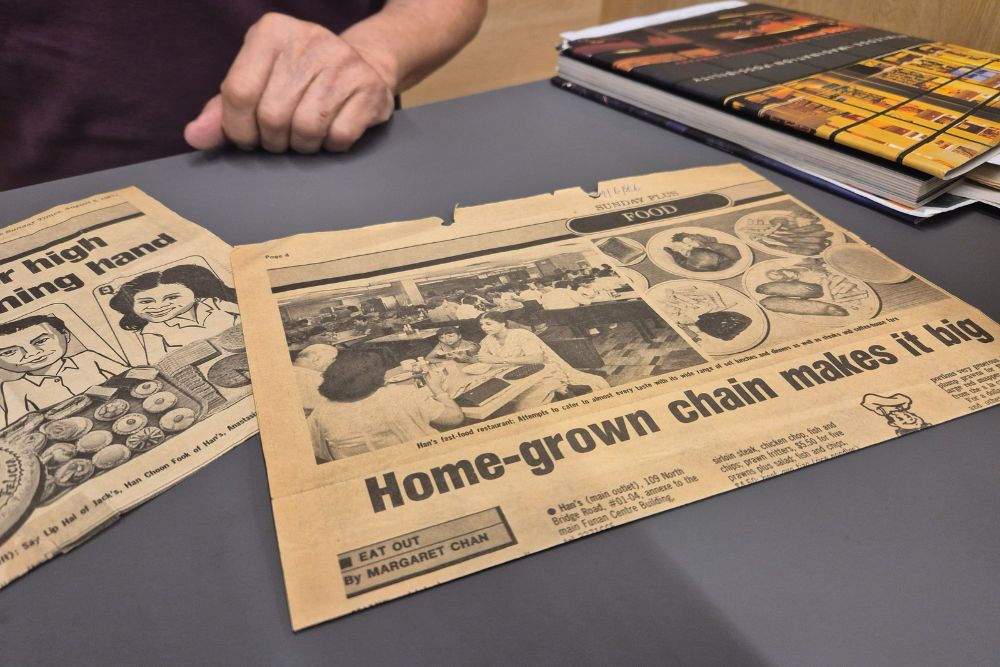
We meet the septuagenarian at Han’s newest outlet in the basement of Odeon 333. When we arrive, we find him sitting in a quiet corner with his nose buried in a newspaper. A dark maroon polo peeks out from under the opinion pages, and when he stands to shake hands, we spot nondescript black slacks and matching shoes.
It’s about as incognito as incognito gets – something that could also be said for the man himself. Choon Fook doesn’t speak often to the media, though he breaks his silence on rare occasions. The opening of the Odeon 333 outlet (which has been operating since June 2024) is one such occasion.
The cafe serves as the brand’s physical return to Bras Basah, a neighbourhood that holds special significance to Choon Fook and the Hainanese diaspora at large.
It is where Ngiam Tong Boon, the bartender at Raffles Hotel, concocted the Singapore Sling; where Mok Fu Swee, protege of Wong Yi Guan, was said to have popularised Hainanese Chicken Rice with the now-defunct Swee Kee Chicken Rice; and where many Hainanese people, including Choon Fook’s grandparents, operated coffeeshops.
In fact, a huge portion of his family was involved in the F&B industry even before Han’s was formed. His father worked as a coffeeshop assistant in – you guessed it – Bras Basah, while his brother, sister and granduncle worked at one of the outlets of the famous Red House Bakery nearby.
According to Choon Fook, it was the quality of his brother’s cakes that gave him the confidence to leave his “iron rice bowl” civil servant job and go into business with his family. The first Han’s Cafe and Cake House was opened in 1977 at The Arcade, around the same time they opened a bakery at Upper Thomson.
We went with a self-service, fast food-style concept, where all the cakes are displayed at the counter with the kitchen just behind. It was casual and good for families, so we grew fast,
he says.
Moreover, their cakes occupied a unique position in the market.
Above us was the cakes in hotels and below, those in neighbourhood bakeries. Back then, it wasn’t as easy to find cakes as good and cheap as ours,
explains Choon Fook.
In the 40 years that’ve followed, the brand has largely maintained its core concept of easy-going Hainanese nosh in a laidback setting, though it also operates a sub-brand that’s halal-certified.
New tricks in old books
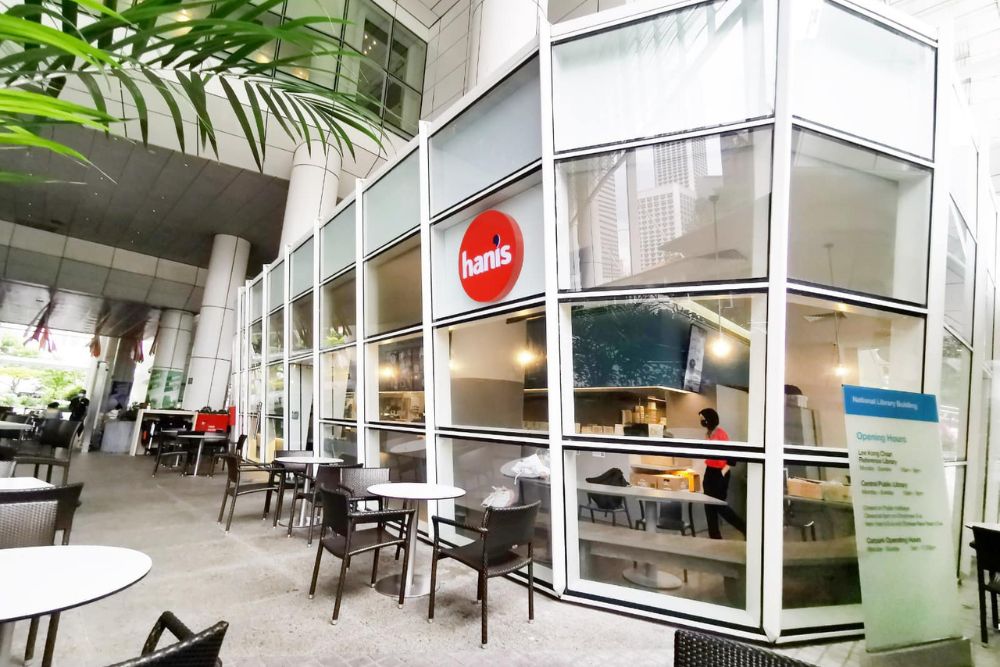
With that said, Han’s Cafe and Cake House’s triumphant return to Choon Fook’s childhood stomping ground of Bras Basah would only come later when it opened an outlet on the ground floor of the National Library in 2006.
We opened that outlet together with the building almost two decades ago. I was very proud to have a Han’s at the library. Many of our signature recipes are developed with cookbooks we borrowed from the library, and that’s something I’ll never forget.
He says,
He rifles through a thick portfolio, before proudly extracting a newspaper clipping of an advertisement detailing that very fact – along with a poem in Mandarin, written by the brand’s founder, describing his feelings about the opening.
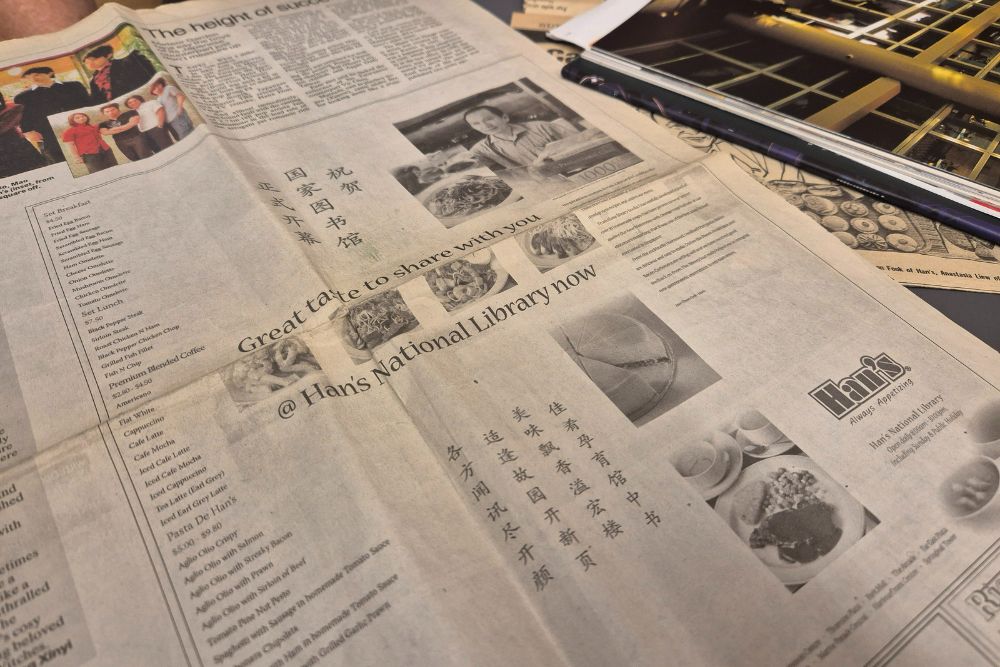
Roughly translated, it said that with recipes made from the library’s books, there was a delicious aroma wafting up from the ground floor, signifying the turning of a new page in the library’s history resulting in joy for all.
However, business difficulties after the pandemic like the acute labour shortage affecting much of the F&B industry led to him making the decision to close shop after 18 years of operations.
I still remember the last day of business. My heart was very heavy,
he recalls.
Evolving the formula
The F&B business, after all, is never easy, especially for a brand that’s been around as long as Han’s has.
Though the silver founder has charged his chefs with “constantly updating the quality” of their recipes in keeping with the times, he’s also bent on sticking to nostalgic flavours that his longtime customers love.
It's not easy. You can't stay the same forever – change is a must. I can see now, in terms of food and drink, there is all kind of international food in the market from Korea, Vietnam, China, all over the world,
he says.
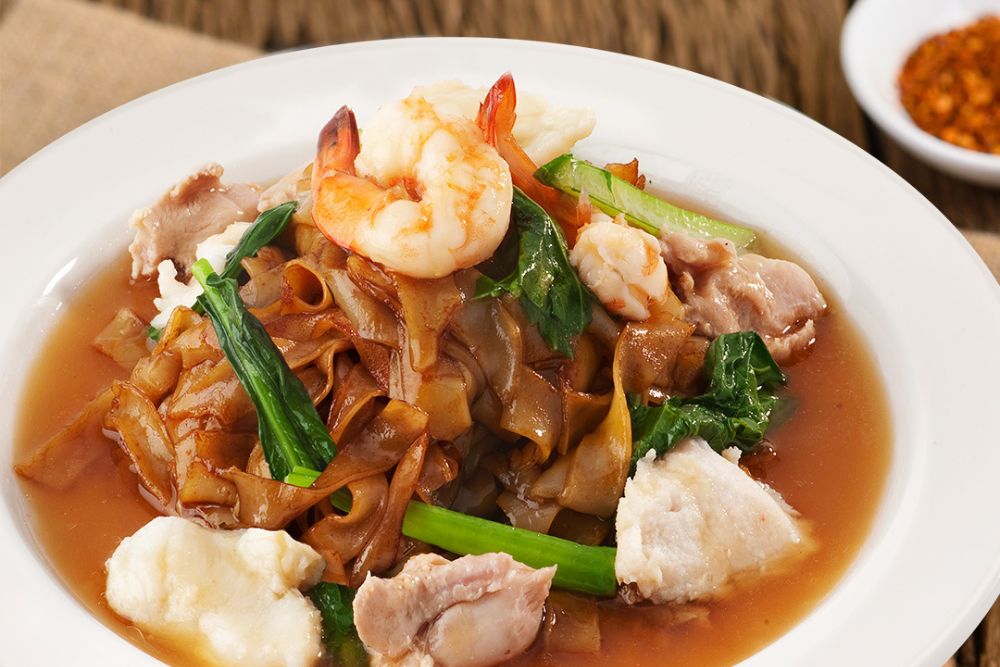
But as an F&B operator, just going into say, Chinese food because it's popular now, yes, business will probably go up, but this is not the traditional food we are known for. We cannot forget our senior customers who have grown up eating our Hainanese fish and chips, our hor fun, our pork chop. They are the ones who brought their kids, and now their kids and grandkids to Han’s,
adds Choon Fook.
I would rather think harder to find something that can embrace all our customers.
Future plans for Han’s
One potential new concept that the Han’s founder has been playing with is a “more upmarket Hainanese restaurant which explores old-day Singapore”, using food as a way to educate “younger customers about significant historical or cultural scenes”.
However, that is still in the works due to the labour shortage. Choon Fook is also mulling his succession plan, with the aim of keeping his business flourishing.
Whoever who is capable to take the job, who will be good for the company, can take over Han’s. It doesn’t have to be a relative,
he says.
"I can understand and accept that."

